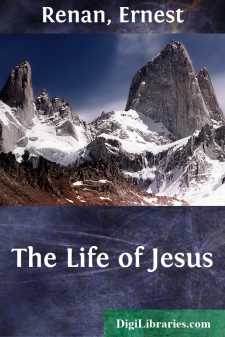Categories
- Antiques & Collectibles 13
- Architecture 36
- Art 48
- Bibles 22
- Biography & Autobiography 813
- Body, Mind & Spirit 142
- Business & Economics 28
- Children's Books 17
- Children's Fiction 14
- Computers 4
- Cooking 94
- Crafts & Hobbies 4
- Drama 346
- Education 46
- Family & Relationships 57
- Fiction 11829
- Games 19
- Gardening 17
- Health & Fitness 34
- History 1377
- House & Home 1
- Humor 147
- Juvenile Fiction 1873
- Juvenile Nonfiction 202
- Language Arts & Disciplines 88
- Law 16
- Literary Collections 686
- Literary Criticism 179
- Mathematics 13
- Medical 41
- Music 40
- Nature 179
- Non-Classifiable 1768
- Performing Arts 7
- Periodicals 1453
- Philosophy 64
- Photography 2
- Poetry 896
- Political Science 203
- Psychology 42
- Reference 154
- Religion 513
- Science 126
- Self-Help 84
- Social Science 81
- Sports & Recreation 34
- Study Aids 3
- Technology & Engineering 59
- Transportation 23
- Travel 463
- True Crime 29
Ernest Renan
Ernest Renan (1823–1892) was a French philosopher, historian, and writer known for his works on religion, particularly Christianity and early Islam. His most famous work, "Life of Jesus" (1863), caused controversy due to its rationalist approach, portraying Jesus as a historical figure rather than a divine one. Renan's ideas influenced the secularization of European thought and sparked debates about faith and reason in the 19th century. He also wrote "The Future of Science" and "The History of the Origins of Christianity," contributing significantly to modern historical and religious scholarship.
Author's Books:
Sort by:
by:
Ernest Renan
LIFE OF JESUS PLACE OF JESUS IN THE HISTORY OF THE WORLD. The great event of the History of the world is the revolution by which the noblest portions of humanity have passed from the ancient religions, comprised under the vague name of Paganism, to a religion founded on the Divine Unity, the Trinity, and the Incarnation of the Son of God. It has taken nearly a thousand years to accomplish this...
more...
by:
Ernest Renan
PART I. Tréguier, my native place, has grown into a town out of an ancient monastery founded at the close of the fifth century by St. Tudwal (or Tual), one of the religious leaders of those great migratory movements which introduced into the Armorican peninsula the name, the race, and the religious institutions of the island of Britain. The predominating characteristic of early British Christianity...
more...



